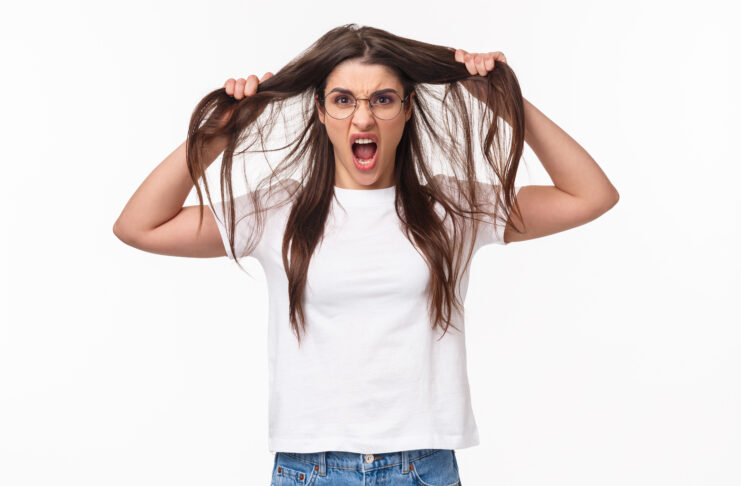Itchy scalps are a common, bothersome, and inconvenient condition for many people. Numerous ailments, including psoriasis, dandruff, fungal infections, dry skin, and even stress, can result in an itchy scalp.
Whatever the underlying cause, there are many methods to treat and reduce the symptoms of an itchy scalp. In this blog, we’ll discuss some of the greatest remedies for itchy scalps so you can regain pleasant, healthy skin.
Identify the Source of the Itch
Before you can properly treat an itchy scalp, you must identify the underlying cause of the condition. If the cause is dry skin or dandruff, you might benefit from using a medicated shampoo or a moisturizer for the scalp. If a fungal infection is the reason, you may need to take an antifungal medicine. Occasionally, seeking a diagnosis and treatment for the disease may require contacting a dermatologist or specialist.
Keep Your Scalp Clean
Practicing good scalp hygiene can help prevent and relieve itchy scalps. After giving your hair a gentle shampoo wash, be sure to thoroughly rinse it. Avoid using hot water on your scalp as it will dry it out and exacerbate itching.
If your hair is greasy, you may need to wash it more frequently to prevent buildup.
Third, Use Medicated Shampoo
A medicated shampoo may help to reduce irritation and inflammation if your itchy scalp is caused by dandruff or seborrheic dermatitis. Look for shampoos with ingredients such as salicylic acid, pyrithione zinc, or ketoconazole.
These ingredients can reduce flaking and itching by delaying the growth of yeast and fungus on your scalp.
Look Into Natural Solutions
You may relieve itchy scalp and dandruff at home with these methods. Tea tree oil is a popular choice due to its antifungal and anti-inflammatory properties.
A combination of a few drops of tea tree oil and a carrier oil, such coconut oil, can be used to massage your scalp. Aloe vera is another herbal remedy that might help to lessen inflammation and discomfort. Apply a fresh aloe vera gel on your scalp. After letting it sit for ten to fifteen minutes, give it a quick rinse.
Put a Fragrance on Your Scalp
Dry skin can cause your scalp to become itchy and flake. To aid with this, you might apply a moisturizer or oil to your scalp. Look for products that contain ingredients such as jojoba, argan, or coconut oil.
These oils can hydrate your scalp and reduce inflammation. You might also try massaging a warm compress over your scalp to help hydrate your skin.
Manage Your Tension
Stress can have a big influence on your skin and scalp. If you have a scratchy scalp, stress may aggravate it. It is one of the main reasons why scalps get itchy. To relieve stress, try yoga, meditation, or deep breathing. Physical activity is also helpful for stress relief and relaxation.
Stay away from irritants
On your scalp, certain chemicals and hair products can cause irritation and itching. If you have an itchy scalp, you should avoid using cosmetics that include harsh chemicals or scents.
When using products on your skin, think about using those labeled as light or delicate. Furthermore, you may want to avoid wearing headwear, such as hats, which can absorb sweat and irritate your skin.
Things to Eat in Case of Scalp Itching
Although there isn’t a single diet that will treat itchy scalps, eating a balanced and healthy diet will help to improve the general health of your scalp. The following foods may support the growth of a healthy scalp:
Omega-3 fatty acids
We must get omega-3 fatty acids from our diets because our bodies are unable to produce them on their own. Plant-based sources of omega-3 fatty acids include flaxseeds, chia seeds, walnuts, and fatty fish like mackerel, salmon, and sardines.
Omega-3 fatty acids have been shown to have anti-inflammatory properties, which may help reduce scalp irritation and itching.
Lipoprotein A
Vitamin A is a fat-soluble vitamin essential for strong nails, hair, and skin. Vitamin A can be found in both plant-based foods like spinach, sweet potatoes, and carrots and animal-based foods like dairy, eggs, and liver.
Vitamin A promotes healthy skin by regulating cell division and growth and reducing sebum production, which can irritate dry, itchy scalps.
Calcium: The formation of collagen, a protein that maintains strong, healthy skin, hair, and nails, requires hydrogen-soluble vitamin C. Vitamin C can be found in a wide variety of fruits and vegetables, including bell peppers, citrus fruits, strawberries, and kiwis.
Furthermore, vitamin C has antioxidant properties that help shield the scalp from damage caused by free radicals, which can irritate it.
Zinc
Zinc is necessary for both the immune system to function properly and for healthy skin and hair. Zinc can be found in a variety of animal-based foods, such as oysters, cattle, and poultry, in addition to plant-based foods like pumpkin seeds, chickpeas, and cashews.
B vitamin
B vitamins, such as biotin, niacin, and vitamin B6, are essential for strong, healthy skin, hair, and nails. B vitamins can be found in a wide variety of foods, including whole grains, eggs, nuts, and leafy greens.
B vitamins promote cell growth and differentiation, which all contribute to healthy skin, and reduce oxidative stress and inflammation, which can exacerbate an irritated and itchy scalp.
By incorporating these foods into your diet, you may reduce the likelihood of experiencing scalp irritation and improve the condition of your scalp. Furthermore, it’s important to stay hydrated during the day by drinking lots of water, as dehydration can worsen dryness and irritation on the scalp.

